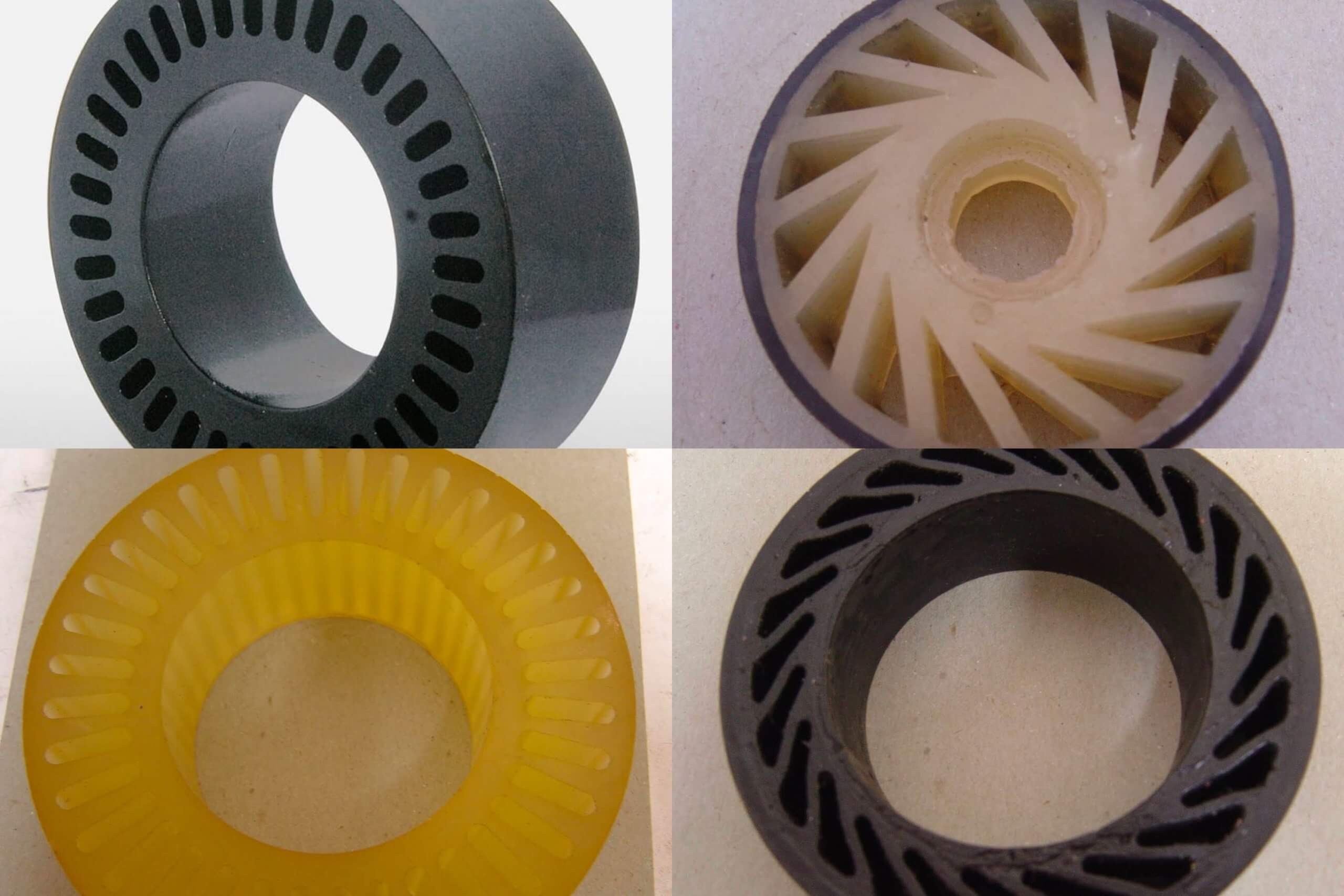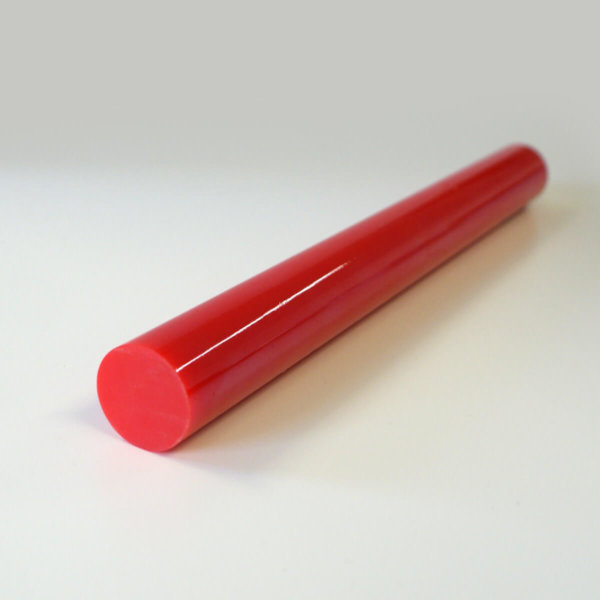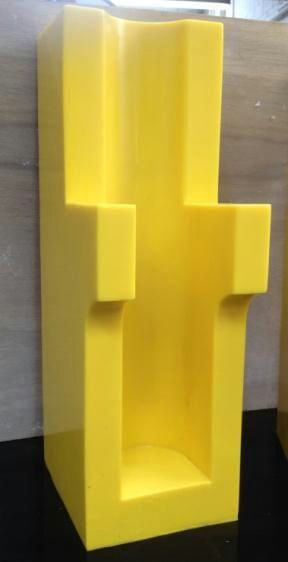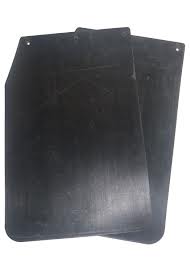PU wheels are racing to the top of parts purchasing lists in a wide range of industries. In this guide, we answer what are PU wheels and explain why they are ‘the way to go’.
It’s easy to assume that you don’t need to ‘reinvent the wheel’ and find new materials for parts that drive modern machinery and off-road vehicles. After all, rubber and metal wheels have served the industry well for hundreds of years.
However, there’s a new kid on the block. A material unparalleled in its versatility, with benefits that make it a highly attractive alternative to rubber, metal and plastic wheels.
We are talking about polyurethane of course, also known as PU.
As the use of polyurethane for wheels is ‘accelerating’ quickly, we thought this was a good time to stop and explain what PU wheels are, and why you should commission them.
What’s a PU wheel?
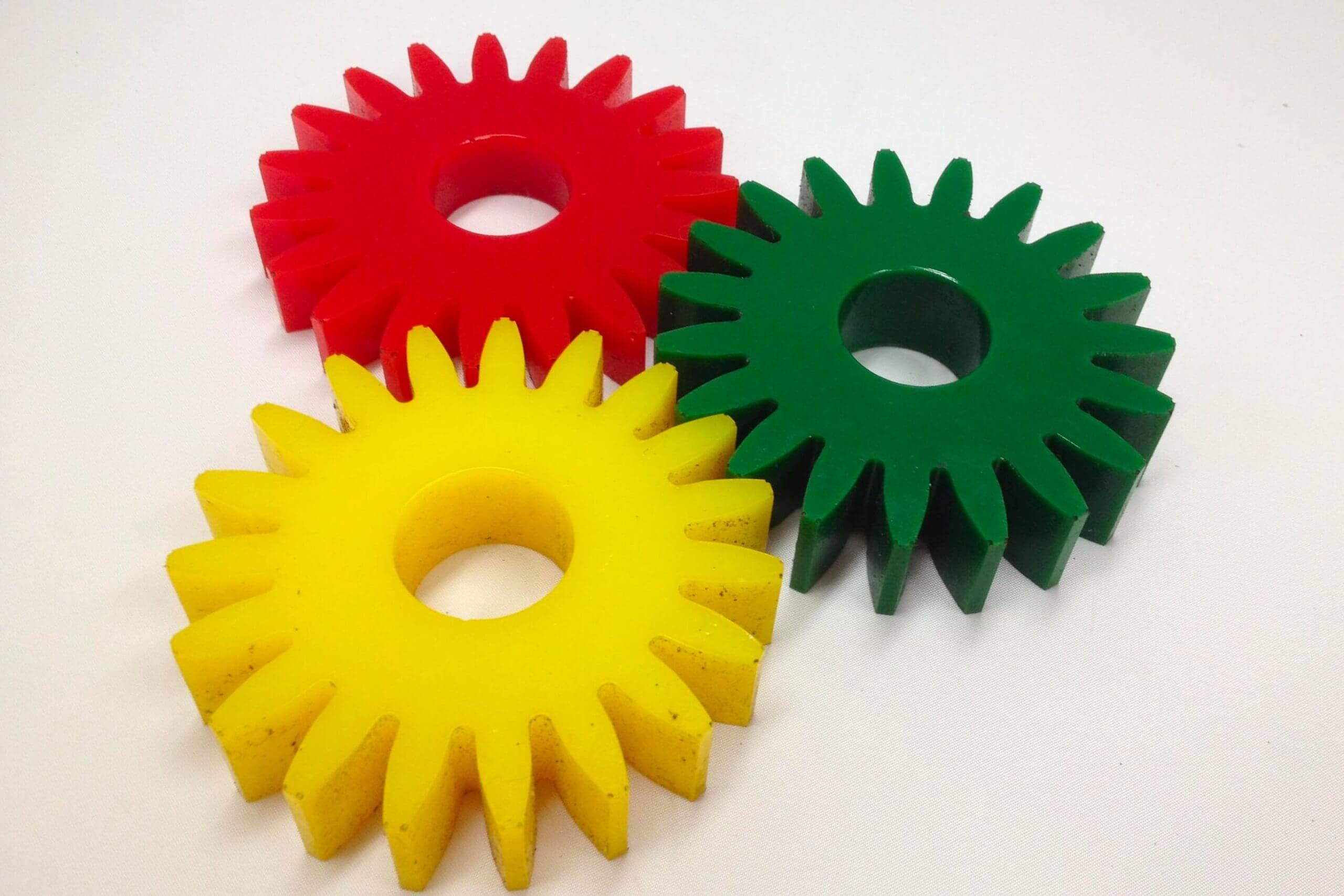
It’s anything you need it to be!
Polyurethane can be used for an immeasurable range of purposes because it can be formulated to be an adhesive liquid, a durable but soft foam, or a block with equivalent load-bearing capabilities to the strongest metals.
This ability to create polyurethane with highly specific tensile properties and purposes is important to producing wheels.
It means if you need extremely strong and durable wheels that perform well in fast operating and heavy-duty situations, PU can be the ideal material. Similarly, if you require soft touch wheels (also known as non-crush or zero crush wheels) or thin foam wheels, there’s a PU blend that will match your specifications perfectly!
Polyurethane is also a great material for star wheels in agricultural machinery, as PU wheels are incredibly durable as well as crack and tear-resistant.
More reasons PU wheels are used
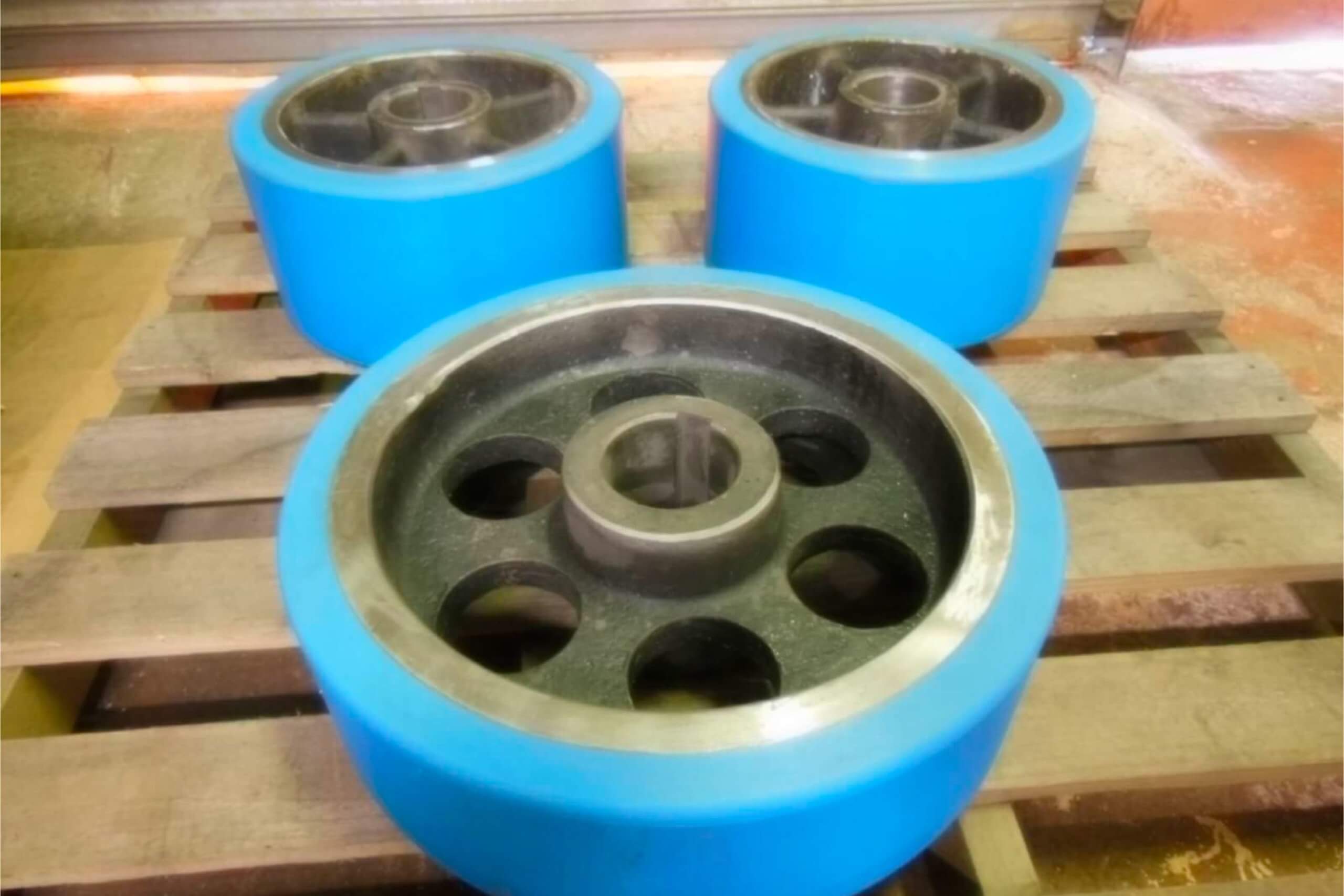 In all its forms, PU is resistant to moisture, mould, mildew, abrasion and impact damage. Which can add greatly to its value for producing wheels, as well as wheel guards and stops.
In all its forms, PU is resistant to moisture, mould, mildew, abrasion and impact damage. Which can add greatly to its value for producing wheels, as well as wheel guards and stops.
Are PU wheels good at coping with extreme temperatures? The short answer is yes. They can withstand heat up to 100 degrees celsius, and cold as low as -20 degrees celsius.
Polyurethane is also an excellent insulator and sound dampener. So when you need wheels that run quietly on hard surfaces, PU is perfect.
These many and varied performance points all contribute to why PU is an advantageous material for producing wheels used in manufacturing, engineering and construction. However, the fact that PU wheels are impervious to oil, grease and solvents can be especially important in some specialist applications. Including times when reliable performance equals safety.
For instance, forklift wheels made from PU offer important operational and safety benefits, as do rebonded industrial wheels and tyres.
Also, the weather-resistant benefits of PU wheels make them a compelling material to use for machines and vehicles that operate outdoors.
Even better, when you opt for Polyurethane, you would be specifying a sustainable way to produce wheels and other parts.
Complex and specialist PU wheels
Items like polyurethane water treatment wheels are manufactured to be robust and often bulky.
However, sometimes the factors driving a part specifier are not ‘just’ durability or tensile factors. There are many occasions when ensuring this crucial part is dimensionally flawless – with a pristine surface – is just as important.
PU has that covered too.
For example, you can commission a PU guide wheel that is a perfect fit, as well as being smooth and lightweight. That could make a significant difference to a machine’s productivity and reliability.
Are PU wheels cost-effective?
That brings us to a final PU wheel insight. They are highly competitive in price and can also save you money long term. Polyurethane is incredibly hard-wearing and durable, so you won’t have to replace parts as often as you would if you opted for alternative materials for wheels.
Could you use nylon wheels instead? In the debate about Polyurethane versus Nylon: which makes better wheels we believe there is one clear winner.
If you put your Polyurethane wheels in the hands of specialists in polyurethane moulding and finishing, you get a prototype and large production run that is an exact match to even the most particular brief.
Want to find out how much it will cost to make your products?
